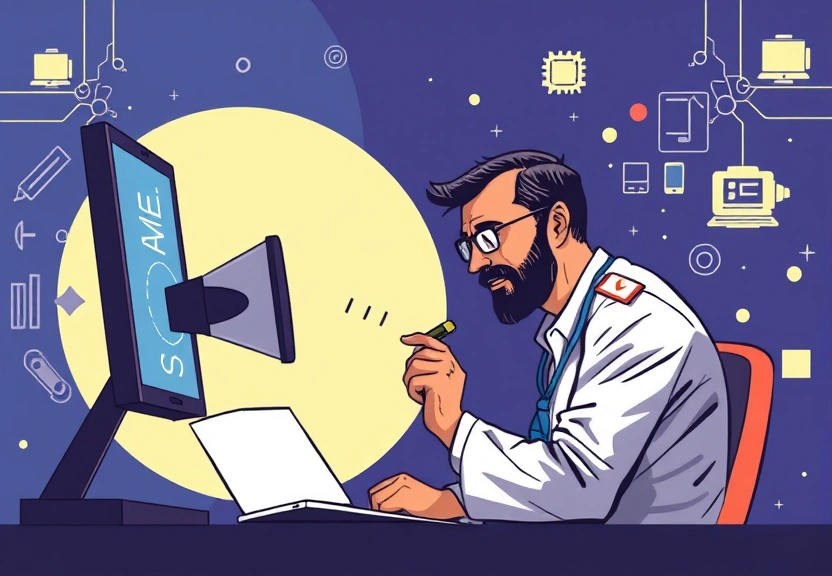Technology: A Double-Edged Sword – CJI Gavai Emphasizes Enhancement Over Replacement in Decision-Making
Introduction
In today’s rapidly evolving world, technology serves as a powerful tool that can either enhance or undermine decision-making processes. Chief Justice of India, D.Y. Chandrachud Gavai, recently articulated his perspective on this duality, highlighting the importance of utilizing technology to enhance functions rather than replace human judgment. In a society increasingly reliant on digital solutions, understanding technology’s role as a double-edged sword is crucial for effective governance and decision-making.

The Double-Edged Nature of Technology
Technology has the potential to significantly improve our lives, but it also poses risks that can lead to adverse outcomes. CJI Gavai’s remarks underscore this dichotomy, suggesting that while technology can streamline processes and improve efficiency, there is a fine line between enhancement and dependence.
For instance, advancements in artificial intelligence and data analysis can provide valuable insights that aid in judicial decision-making. However, over-reliance on these technologies may lead to a diminished role for human judgment, potentially compromising the quality of decisions made in critical situations. This necessitates a balanced approach where technology serves as a supportive tool rather than a replacement for human intellect.
Enhancement of Decision-Making Processes
CJI Gavai emphasizes that technology should enhance decision-making processes by providing comprehensive data analysis, predictive insights, and efficient case management. These enhancements can lead to more informed decisions, ultimately improving the quality of justice delivered. For example, court management systems that utilize technology can help track cases more effectively, reducing backlog and ensuring timely justice.
Furthermore, technology can assist in legal research by quickly sifting through vast databases of case law, helping judges to arrive at well-informed conclusions. By augmenting human capabilities, technology can empower decision-makers to navigate complex legal landscapes more efficiently, thus reinforcing the integrity of the judicial system.
The Risks of Over-Reliance on Technology
While the advantages of technology in decision-making are evident, it is equally important to acknowledge the potential pitfalls of its overuse. The risk of becoming overly dependent on technological solutions can lead to a diminished role for critical thinking and ethical considerations in decision-making. CJI Gavai’s concerns highlight the importance of maintaining a human-centric approach in the face of increasing digitalization.
Instances of algorithmic bias and lack of accountability in automated systems serve as stark reminders of the need for vigilance. The judicial process must remain grounded in human values and judgment, ensuring that technology complements rather than governs decision-making. This perspective is vital for maintaining public trust in the legal system and ensuring justice is served fairly and equitably.
The Path Forward: Balancing Technology and Human Judgment
As we navigate the complexities of modern governance and decision-making, striking a balance between technology and human oversight is paramount. CJI Gavai’s emphasis on enhancement over replacement advocates for a collaborative approach where technology acts as a facilitator for human decision-makers.
To achieve this balance, stakeholders must invest in training and education that empower decision-makers to leverage technology effectively while fostering critical thinking and ethical reasoning. Moreover, establishing robust frameworks for accountability and transparency in technological applications within the judicial system is essential to safeguard against potential abuses and biases.
“`
